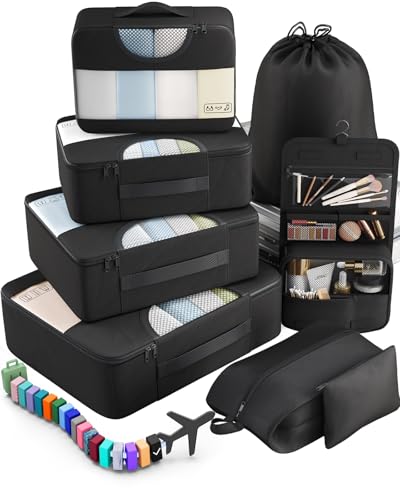In Sierra Leone, they use Type D and G power plugs and outlets. The voltage is 230V, and the frequency is 50Hz.
So, you’ll need a travel adapter in Sierra Leone. Their plugs and outlets are different from the Type A and B ones we use back in the States.
Quick Overview of the Plugs in Sierra Leone:
- Plug type in Sierra Leone: D and G
- Standard voltage: 230V
- Frequency: 50Hz
- Need a travel adapter? Yes, you do need a travel adapter
- Need a voltage converter? Some gadgets will probably need it
- Recommended plug adapter: Vintar Universal Travel Adapter Kit
Every fact on this page is backed by local power authority guidelines, global IEC standards, and personal accounts from travelers who’ve experienced it firsthand.
The Only Travel Adapter You’ll Need in Sierra Leone
Not all travel adapters work in Sierra Leone. Pick the wrong one, and your devices might not charge at all. We don’t sell them, but we’ve researched the best one for you—safe, durable, and easy to use:
Recommended Travel Plug Adapter
by 1,000+ travelers on Amazon
If you’re already traveling and don’t have one, you can usually snag something locally.
But hey, for your next trip, throw one in your bag before you leave—you’ll save yourself the scavenger hunt later.
People visiting Sierra Leone often also include Guinea, Côte d’Ivoire, and Liberia in their itinerary. Don’t forget to check which plugs are used.
Power Outlets in Sierra Leone
In Sierra Leone, they use Type D and G power plugs and outlets.
Type D

Type D outlets have three large round prongs in a triangular layout and typically only accept Type D plugs, although Type C plugs might fit loosely and are not recommended for safe use.
Type G

Type G outlets have three rectangular prongs in a triangular layout and built-in fuses. Other plug types won’t fit without an adapter.
Do You Need a Voltage Converter?
Your electronics must match the voltage of the country you’re visiting, and in Sierra Leone, the voltage is different from the 120V we use in the U.S. That means you’ll probably need a converter.
Always check the power label on your device before using it abroad. If it lists “100-240V, 50/60 Hz”, your device is dual voltage and works with both 120V and 220-240V power sources without a converter. This applies to laptops, tablets, smartphones, cameras, and rechargeable toothbrushes.

Which Travel Devices May Need a Converter?
Want peace of mind while traveling? These top-rated voltage converters are a safe bet.
| Device | Need Converter? | Notes |
|---|---|---|
| Phone | ❌ No (usually) | Most modern phone chargers are dual voltage (100–240V) |
| Laptop | ❌ No (usually) | Check the power brick label for 100–240V |
| Hairdryer | ✅ Yes (often) | High wattage; many models are not dual voltage |
| Electric toothbrush | ⚠️ Check voltage | Some models are 110V only |
| Camera / DSLR | ❌ No (usually) | Most chargers are dual voltage |
| Power bank | ❌ No | Charges via USB, adapter is enough |
| Electric shaver / trimmer | ⚠️ Check voltage | Older or cheaper models may not support 230V |
| Tablet / iPad | ❌ No | All models are dual voltage |
| Portable fan | ✅ Yes (sometimes) | Many models are not compatible with 230V |
| Game console | ⚠️ Check voltage | Newer consoles like PS5 and Xbox are often dual voltage — check to be sure |
| Bluetooth speaker | ❌ No (usually) | Charges via USB |
| E-reader (Kindle, etc.) | ❌ No | USB charging only, no converter needed |
Top Travel Essentials to Pack
Some gear just makes life easier when you’re abroad. These items don’t weigh much, but they pull their weight when it comes to convenience.
Digital Luggage Scale
Packing Cubes
Power Bank
More About Sierra Leone
Sierra Leone is a country that’s quietly reintroducing itself to the world. After years of being off most travelers’ radar, it’s now gaining attention for its wild beauty, uncrowded beaches, and welcoming people. It’s still raw in many ways, but that’s also part of the appeal—this is travel with soul, not polish.
The coastline is stunning, with long beaches that stretch for miles and barely a hotel in sight. Inland, you’ve got lush rainforests, wildlife, and small villages that give a real glimpse into daily life. Places like Bureh Beach and Tiwai Island are already favorites among adventurous travelers, and new eco-lodges are slowly popping up in the right places.
It’s not the easiest country to travel in—you’ll need patience, local advice, and a sense of adventure—but it’s one of the most rewarding. Sierra Leone doesn’t pretend to be something it’s not. It’s authentic, welcoming, and ready to surprise you if you give it the chance.
Top places to visit in Sierra Leone: Freetown and Bureh Beach.




